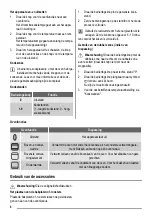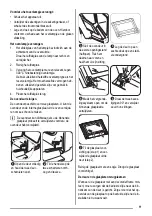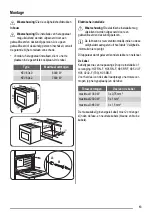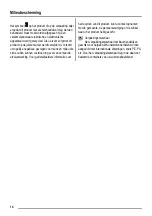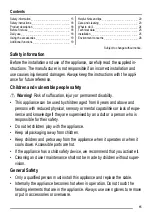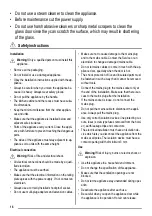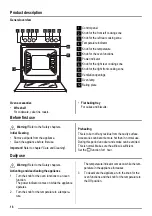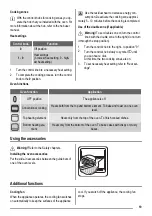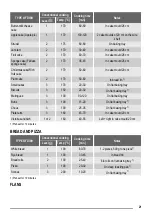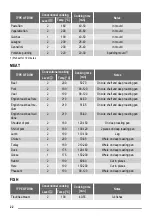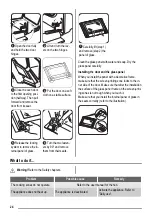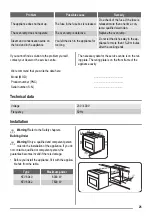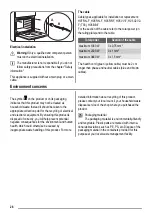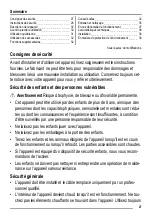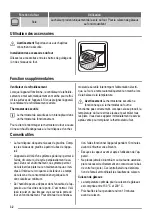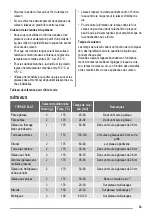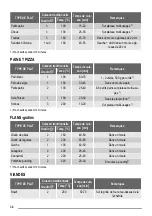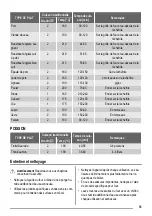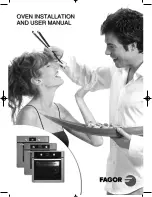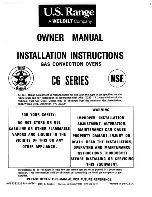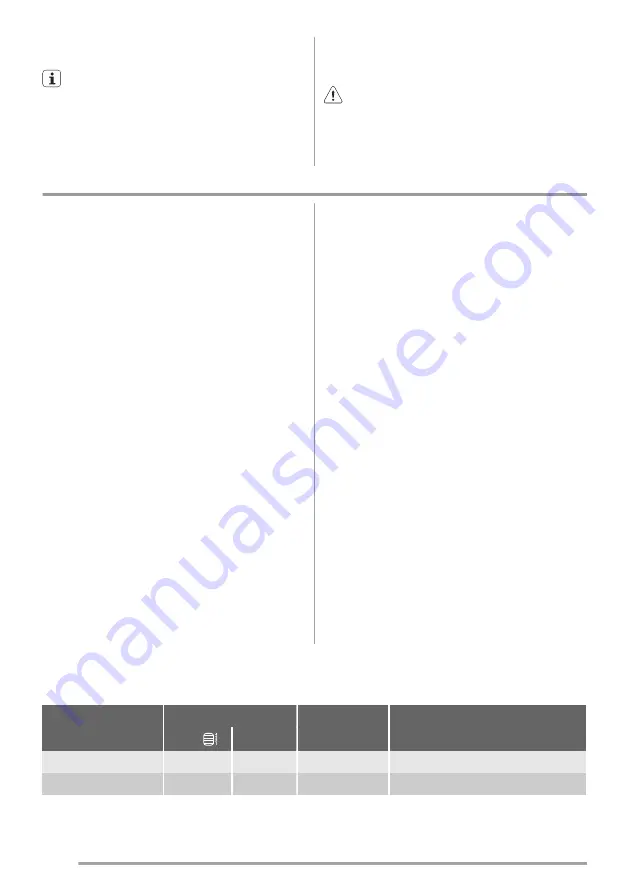
Safety thermostat
The safety thermostat is a thermal cut-out in an
operating thermostat.
To prevent damage to the oven thermostat caused by
dangerous overheating, the oven has a safety thermo-
stat that interrupts the power supply. The oven switches
back on again automatically, when the temperature
drops.
Warning!
The safety thermostat works only if the
oven thermostat does not operate correctly. When
this occurs, the oven temperature is very high and can
burn all the dishes. You must call the Service
immediately to replace the oven thermostat.
Helpful hints and tips
• The appliance has four shelf levels. Count the shelf
levels from the bottom of the appliance floor.
• The appliance has a special system which circulates
the air and constantly recycles the steam. With this
system you can to cook in a steamy environment and
keep the food soft inside and crusty outside. It de-
creases the cooking time and energy consumption to
a minimum.
• Moisture can condense in the appliance or on the
glass doors. This is normal. Always stand back from
the appliance when you open the appliance door
while cooking. To decrease the condensation, run the
appliance for 10 minutes before cooking.
• Wipe away moisture after every use of the appliance.
• Do not put the objects directly on the appliance floor
and do not cover the components with aluminium foil
when you cook. This can change the baking results
and damage the enamel coating.
Baking cakes
• The best temperature for baking cakes is between
150 °C and 200 °C.
• Preheat the oven for approximately 10 minutes be-
fore baking.
• Do not open the oven door before 3/4 of the set
cooking time is up.
• If you use two baking trays at the same time, keep
one level empty between them.
Cooking meat and fish
• Do not cook meat with weight below 1 kg. Cooking
too small quantities makes the meat too dry.
• To keep the red meat well-cooked outside and juicy
inside set the temperature between 200 °C - 250 °C.
• For white meat, poultry and fish, set the temperature
between 150 °C - 175 °C.
• Use a dripping pan for very fatty food to prevent the
oven from stains that can be permanent.
• Leave the meat for approximately 15 minutes before
carving so that the juice does not seep out.
• To prevent too much smoke in the oven during roast-
ing, add some water into the dripping pan. To prevent
smoke condensation, add water each time after it
dries up.
Cooking times
Cooking times depend on the type of food, its consisten-
cy, and volume.
Initially, monitor the performance when you cook. Find
the best settings (heat setting, cooking time, etc.) for
your cookware, recipes and quantities when you use
this appliance.
Baking and roasting table
CAKES
TYPE OF DISH
Conventional cooking
Cooking time
[min]
Notes
Level
Temp [°C]
Whisked recipies
2
170
45-60
In cake mould
Shortbread dough
2
170
24-34
In cake mould
20

